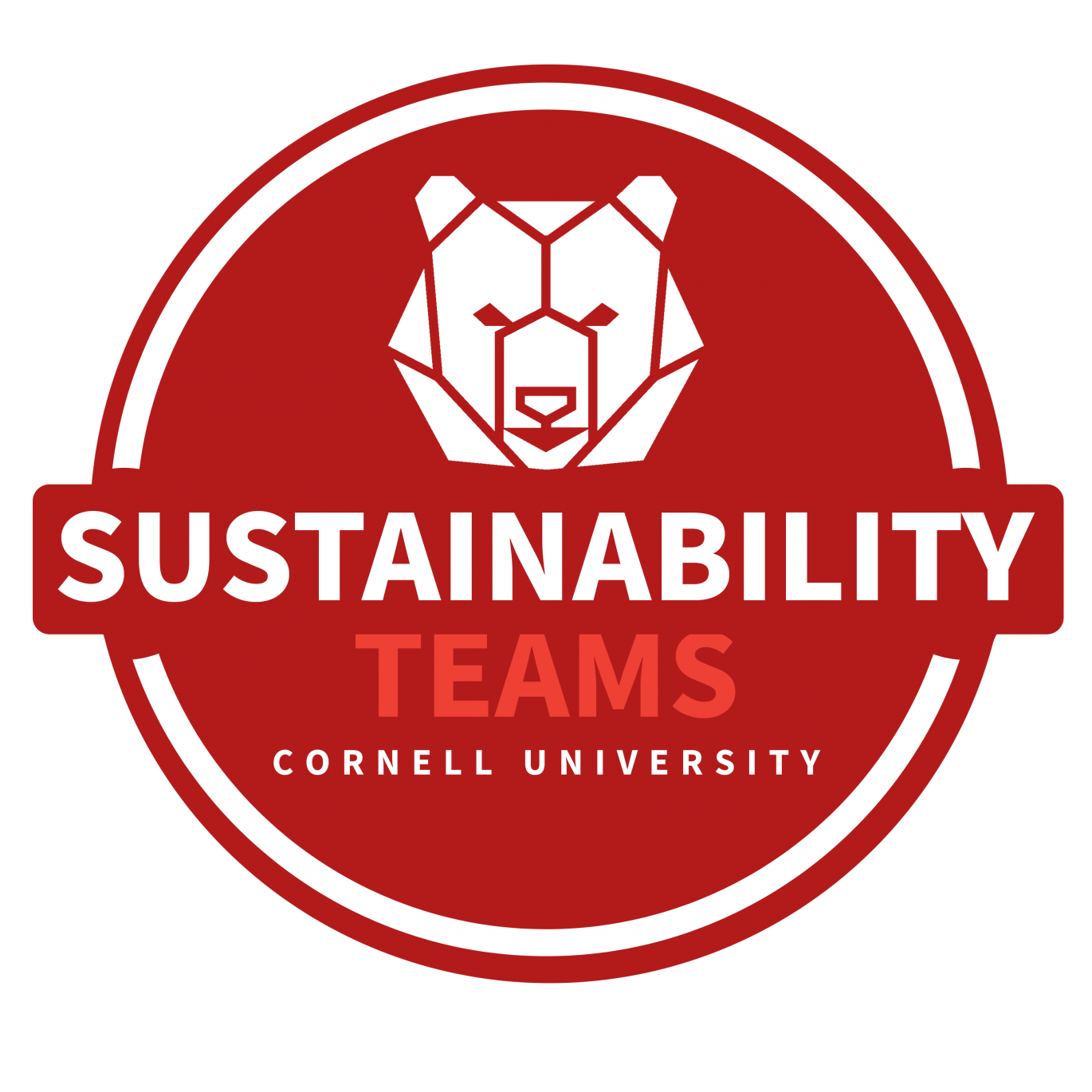 Sustainability Teams
Sustainability Teams
Sustainability Teams or “Green Teams” are teams of staff working to create a culture of sustainability where they work on campus. Teams are created to focus on sustainability change in specific departments, colleges, and units.
What do Teams do?
Sustainability Teams or “Green Teams” help to create a culture of sustainability where they work by supporting key programming and campaigns for a more sustainable campus and community. Teams are created to focus on sustainability change in specific departments, colleges, and units, but can be any size! Some teams focus on updating signage or behaviors in offices and shared spaces, while others create events or invite speakers to strengthen their community's knowledge of sustainability & climate topics. Key activities include:
- Creating a culture of sustainability where they work
- Creating programs to support Cornell's annual Sustainability Events:
- Climate Action Month (formerly known as Energy Smackdown)
- Winter & Spring Energy Setbacks
- Beyond Waste
- Sustainability Month
- Recognizing sustainability leadership with awards
- Implementing Think Big, Live Green (TBLG)
Think Big, Live Green
Think Big, Live Green is a structured set of campaigns to encourage thoughtful decisions about environmental impact, and actions to built healthier communities and was designed using community-based social marketing principles. Campaigns are designed to help Cornell achieve carbon neutrality, sustainability goals, and to support the creation of responsible, diverse, and inclusive environments.
Branding Materials
Are you a member of a Team? Access the branding materials for Sustainability Teams (requires NetID login).
Join a Team
Join and gain the knowledge, tools and leadership skills to inspire sustainable practices in a fun and engaging environment. Teams are open to staff, faculty, and students and are geared towards change in the workplace, our buildings, and living spaces. To join a team, email the lead member listed below:
College of Human Ecology
To join this team contact: Kristine Mahoney
The College of Human Ecology team was the first to launch at Cornell and has a Building Energy Scoreboard to help members of their community participate in energy-saving and carbon-reducing competitions, several regular campaigns including CHE's Got Sole (Shoe Donation Drive), Upcycled Art Exhibit, and an Electronics Recycling Drive during Recyclemania.

College of Veterinary Medicine
To join this team contact: Nicole Woodhull
The College of Veterinary Medicine team launched in 2018 Cornell and has it's own Vet School Building Energy Scoreboard to help members of their community participate in energy-saving and carbon-reducing competitions.

Facilities & Campus Services
To join this team contact: David Vanderpoorten
FCS supports activities in the Humphreys Service Building, and organizes events to help reduce paper & energy waste. The team manages the Humph-Frees Exchange Office Supply Closet.

Big Red Barn
To join this team contact: Jennifer Forbes
Winner of a 2019 Cornell University Partners in Sustainability Award.

Weill Cornell Medicine Sustainability Council
To join this team contact: wcm-sustainability@med.cornell.edu
Weill Cornell Medicine campus-wide sustainability efforts are managed through the Sustainability Leadership Council. The council is comprised of employees from central administration as well as from clinical departments. The council leads sustainability planning and coordinates efforts across departments to reduce waste and conserve energy.

Human Resources
To join this team contact: Amy Layton

Lab of Ornithology
To join this team contact: Vanessa Powell

Herbert F. Johnson Museum of Art
To join this team contact: Laura Libert

Office of the Judicial Administrator
To join this team contact: Steve Morey

Cornell Tech
To join this team contact: Haley Bissegger

CALS
To join this team contact: Meaghan Austin
The CALS Sustainability Team is committed to fostering a culture of sustainability within the College of Agriculture and Life Sciences. Our mission is to reduce environmental impact through energy conservation, waste reduction, and resource sharing, while engaging faculty, staff, and students in meaningful actions that support Cornell’s climate goals. By promoting collaboration and innovative initiatives, we aim to create a greener, more resilient campus community. Please reach out if you are interested in joining the CALS Green Team and would like to share your ideas.
Launch a Team
Contact the Sustainability Engagement Manager to get started. Teams are most successful when they start with 1-2 passionate individuals, work towards support from their senior leadership, and a willingness to adopt 1-2 projects per year to improve sustainability in the workplace.

